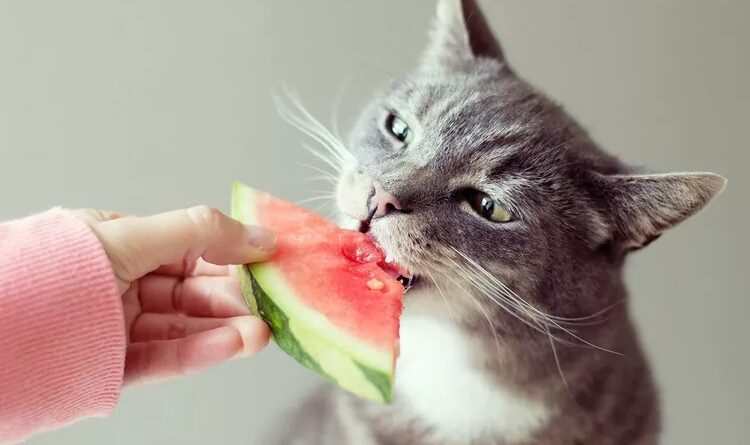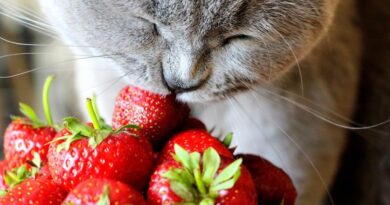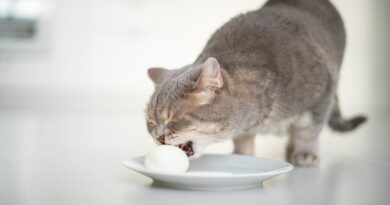Can Cats Eat Watermelon? A Complete Guide to Safe Snacking for Your Feline
Cats are naturally curious creatures, often intrigued by the food their owners eat. If you’ve ever found your cat eyeing your slice of watermelon, you might wonder: can cats eat watermelon? Is it safe for them, and does it provide any nutritional benefits? This guide explores everything you need to know about feeding watermelon to cats, including its benefits, risks, and how to serve it safely.
Is Watermelon Safe for Cats?
The short answer is yes, watermelon is safe for cats to eat in small amounts. This juicy fruit is non-toxic to cats and can be a hydrating treat, especially during hot summer days. However, moderation is key, as cats have different dietary needs than humans.
Nutritional Benefits of Watermelon for Cats
Watermelon is primarily made up of water (about 92%), making it an excellent source of hydration. Here’s a breakdown of its nutritional components and potential benefits for your feline friend:
Hydration
Cats often do not drink enough water, especially if they eat dry food. A small piece of watermelon can help keep your cat hydrated, particularly in warmer weather.
Vitamins and Minerals
Watermelon contains vitamins A, C, and B6, as well as potassium and magnesium. While cats produce their own vitamin C and don’t require large amounts of these nutrients, the fruit can provide a small nutritional boost.
Low-Calorie Snack
Watermelon is low in calories, making it a guilt-free treat for overweight or less active cats when given in small quantities.
Risks of Feeding Watermelon to Cats
While watermelon is generally safe for cats, there are a few risks to be aware of:
Sugar Content
Watermelon contains natural sugars, which can be problematic for cats if consumed in large amounts. Cats’ digestive systems are not designed to handle high sugar intake, and excessive consumption could lead to digestive upset or obesity.
Seeds and Rind
Watermelon seeds and rind should never be given to cats. Seeds contain compounds that can be harmful if ingested in large amounts, and the rind is tough to digest, potentially causing choking or gastrointestinal blockages.
Allergic Reactions
Although rare, some cats might have an allergic reaction to watermelon. Always watch for signs such as itching, swelling, or vomiting when introducing any new food.
Digestive Issues
Cats have sensitive stomachs, and too much watermelon can cause diarrhea or an upset stomach.
How to Safely Feed Watermelon to Your Cat
If you want to share a small piece of watermelon with your cat, follow these steps to ensure it’s safe:
Choose a Ripe Watermelon
Select a ripe watermelon that is free of bruises or soft spots. Avoid giving your cat fruit that is overly ripe or fermented.
Wash the Watermelon
Rinse the watermelon thoroughly to remove dirt, bacteria, or pesticides from the surface.
Remove Seeds and Rind
Cut the watermelon into small, bite-sized pieces and ensure all seeds and rind are removed. Only the red, fleshy part of the fruit should be offered.
Offer a Small Portion
Start with a tiny piece to see how your cat reacts. Monitor them for any signs of discomfort or adverse reactions.
Limit Frequency
Watermelon should be an occasional treat, not a regular part of your cat’s diet. A small piece once a week is sufficient.
Why Do Some Cats Like Watermelon?
Cats are obligate carnivores, meaning their diet is primarily meat-based. However, many cats are curious about the taste and texture of fruits like watermelon. Its juicy and refreshing nature can be appealing to some felines, especially during hot weather.
Interestingly, cats lack the taste receptors for sweetness, so they aren’t drawn to watermelon because of its sugary flavor. Instead, they may be attracted to its water content or intrigued by their owner’s interest in the fruit.
Signs Your Cat Might Not Tolerate Watermelon
Not all cats will enjoy or tolerate watermelon. Watch for these signs if you decide to share this treat:
Vomiting
If your cat vomits after eating watermelon, it’s best to avoid giving it again.
Diarrhea
Loose stools can indicate that the watermelon did not agree with your cat’s digestive system.
Lethargy
If your cat seems unusually tired or sluggish after eating watermelon, it may be a sign of digestive discomfort.
Alternatives to Watermelon for Cats
If your cat doesn’t like watermelon or you’re looking for other healthy snack options, here are some alternatives:
Cucumber
Like watermelon, cucumber is hydrating and low in calories. Make sure to remove the skin and seeds.
Cooked Pumpkin
Pumpkin is excellent for cats and can aid in digestion. Offer it plain, without spices or sugar.
Cooked Meat
Small pieces of plain, cooked chicken or turkey are a safe and nutritious treat.
Cat-Specific Treats
Commercially available treats formulated for cats can be a convenient option.
Can Kittens Eat Watermelon?
Kittens have more delicate digestive systems than adult cats, so it’s best to avoid giving watermelon to kittens. Their primary source of nutrition should be their mother’s milk or kitten-formulated food. As they grow older and transition to solid food, you can introduce small amounts of watermelon cautiously.
Frequently Asked Questions
1. Can watermelon replace water for cats?
No, watermelon should not replace water. While it can supplement hydration, fresh water should always be available for your cat.
2. How much watermelon can I give my cat?
Limit watermelon to a small, bite-sized piece. Overfeeding can cause digestive issues.
3. Can diabetic cats eat watermelon?
Diabetic cats should avoid watermelon due to its natural sugar content. Always consult your vet before introducing any new food to a diabetic cat’s diet.
4. Is watermelon juice safe for cats?
It’s best to avoid giving watermelon juice to cats, as it may contain added sugars or concentrate the fruit’s natural sugars, which could upset their digestive system.
Conclusion
Watermelon can be a safe and refreshing treat for your cat when served correctly and in moderation. Its high water content makes it an excellent snack for hydration, especially in the summer. However, it’s essential to remove all seeds and rind and monitor your cat for any adverse reactions.
As with any treat, watermelon should not replace a balanced and meat-based diet. Always prioritize your cat’s health and well-being by consulting your veterinarian before introducing new foods. By following these guidelines, you can share the joy of watermelon with your feline friend in a safe and enjoyable way




